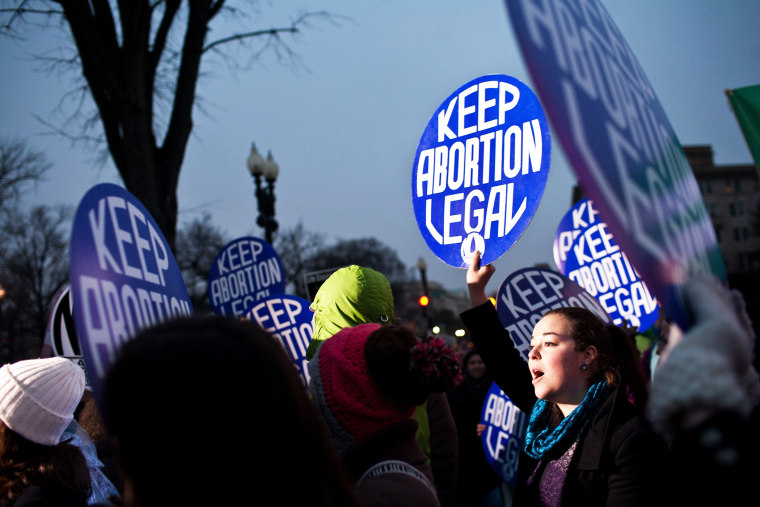Most of the meaningful battles on abortion rights -- the ones already affecting people's daily lives -- are happening in statehouses and the courts. But for a sign of where the political winds are blowing, look no further than the U.S. Congress, where legislative paralysis never stopped anyone from trying to make a point.
Today, rather than let Sen. Lindsey Graham's 20-week abortion ban singlehandedly return the issue of reproductive rights to the federal battleground, Sens. Richard Blumenthal, Barbara Boxer, and Tammy Baldwin, along with Reps. Lois Frankel and Marcia Fudge, are introducing the Women's Health Protection Act of 2013. The bill seeks to to undercut state laws that are chipping away at Roe v. Wade. According to a release, it is intended to "prohibit laws that impose burdensome requirements on access to women's health such as requiring doctors to perform tests and procedures that doctors deem in their professional opinion to be unnecessary."
No one should particularly expect it to pass, least of all in the House. But there is the undeniable lure of playing offense -- and these Democrats seem to sense a shift in the climate.
In an interview with Roll Call, Blumenthal sounded pretty confident that the political advantage would favor his side: “As the election approaches, I think the voters are going to want to know where legislators stand on these issues.” Some of the Senate Democrats up for election in states like Louisiana, North Carolina and Arkansas may be less enthused, although they could take heart from the recent Virginia governor's race, where voters motivated by abortion overwhelmingly voted for the Democrat.
We have been here before. In July 2007, then-presidential primary candidate Barack Obama was asked at a Planned Parenthood event what he would do on a federal level when “we're expecting, and have already seen, so much antichoice legislation at the state level.” (They hadn’t seen anything yet.) Obama replied confidently, "The first thing I'd do as president is sign the Freedom of Choice Act."
The Freedom of Choice Act was another attempt to entrench a woman’s right to choose in federal law. Obama co-sponsored it as a senator, but it never even went out of congressional committees, even when Democrats controlled both chambers. It did, however, galvanize the opposition. Maybe that’s why Obama was so reticent when asked about it during a press conference marking the first 100 days of his first term.
"Now, the Freedom of Choice Act is not my highest legislative priority," he said. "I believe that women should have the right to choose, but I think that the most important thing we can do to tamp down some of the anger surrounding this issue is to focus on those areas that we can agree on. And that's where I'm going to focus."
In the years that followed, dozens of states did not heed the president’s exhortation to “tamp down some of the anger” or “focus on those areas that we can agree on.” Literally hundreds of restrictions on abortion have subsequently been passed without even needing to involve the president, though many have -- and will -- come before the judges he has been able to successfully appoint. Of course, opponents of abortion have their eye on that, too. On Tuesday, Republicans blocked the nomination of Nina Pillard, Obama’s nominee for the D.C. Circuit Court of Appeals, after months of accusing her of militant feminism. It’s enough to make a pro-choice person cheer for divisiveness – at least as an alternative to unilateral disengagement.
